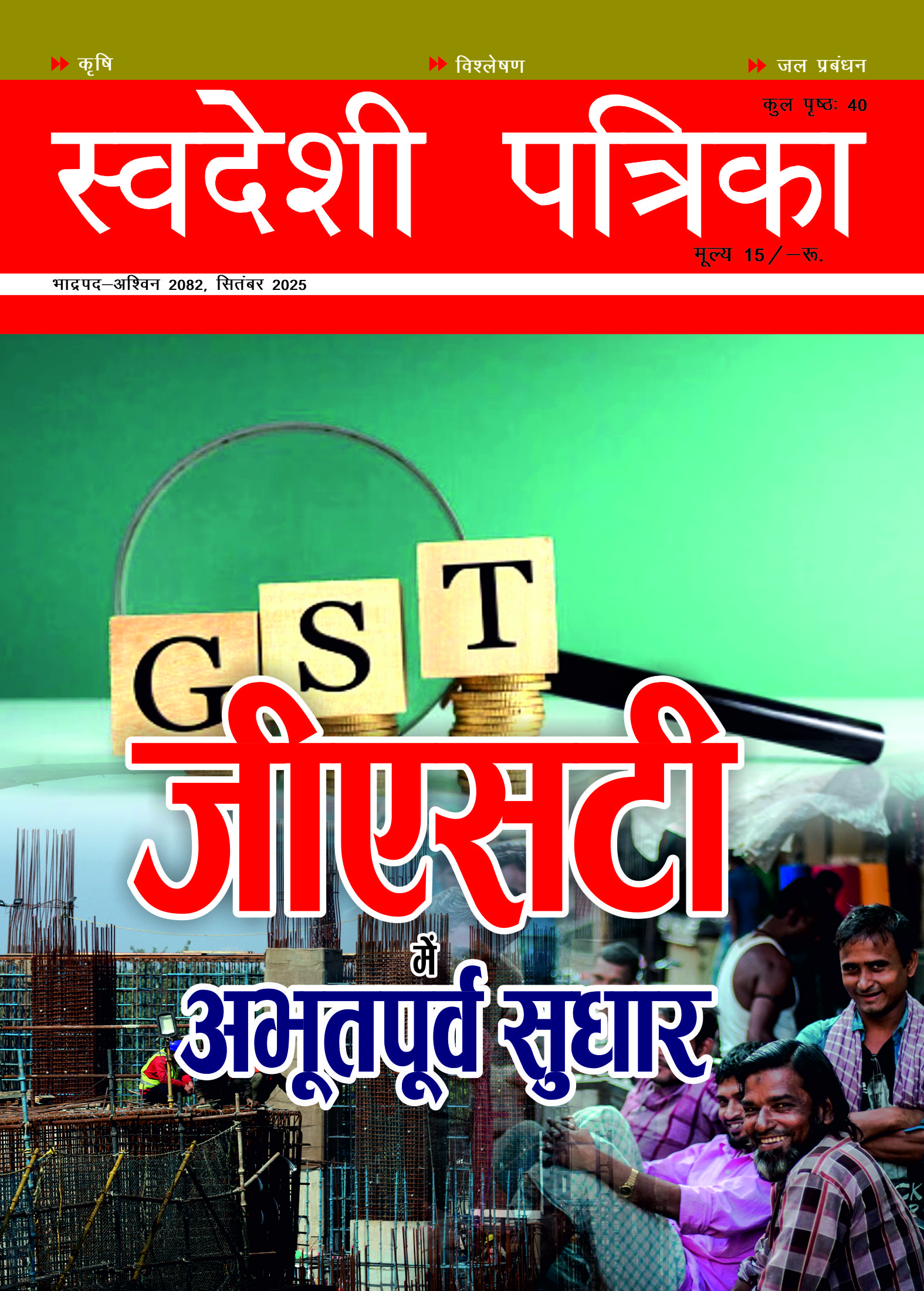
Resolution-2 (15th Rashtriya Sabha, Gwalior (MP))
Swadeshi Jagran Manch
15th Rashtriya Sabha, Gwalior
(24-26 December 2021)
Resolution-2
Technology Yes, Crypto No
Recently, the government has announced the introduction of 'Crypto Currency and Government Digital Currency Bill 2021'. It is clear that the government intends to ban private cryptocurrencies and Reserve Bank of India has plans to issue digital currency. However, government has also indicated to give some relaxation to encourage the technology underneath these cryptocurrencies.
Though, the government and Reserve Bank of India have been in favour of restricting trading in cryptos, however, Hon'ble Supreme Court, gave verdict that since the government has not banned cryptocurrencies legally, it’s not within the right of RBI to issue instructions to banks, to not deal with cryptos. With this, crypto exchanges started trading cryptocurrencies on large scale. Although there is no official information about this, it is estimated that about 20 million people have put their money in cryptocurrencies. People (mostly youth) of small and big cities and even villages are getting attracted towards it, because they feel that they can get quick profit by putting their money in it. Swadeshi Jagran Manch firmly believes that:
First of all, it’s a wrong notion that cryptocurrency is a currency. Currency means an instrument issued by the central bank and guaranteed by the government. Cryptocurrencies are privately issued virtual coins that have no legal recognition.
Secondly, crypto is being used by criminals, terrorists, smugglers and persons involved in hawala. Recently, when cybercriminals blew up the data of many companies through a computer virus all over the world and ransom was demanded in bitcoins, to return the same, the world became aware of the criminal use of bitcoin.
Thirdly, since it is such a valuable virtual asset, which is known to its holder only. Authorities will come to know only when it is transacted through a bank. Although, it can be taxed when its transaction is declared, however, if it is sold abroad and not in the country, then it will not be taxed. In fact, crypto is not a fiat asset, it cannot be shown in the balance sheet of a company or an individual. That is, crypto is becoming a medium for evasion of income tax, GST and many other types of taxes. There is yet another problem that it’s the most convenient method to transfer capital from the country bypassing rules.
Fourthly, due to the ever-increasing price fluctuations in the value of Bitcoin and other types of cryptocurrencies and their ever-increasing demand, the youth is getting attracted towards it. Fluctuations in its value encourage betting in bitcoin. A huge amount of country's money is being put into this. It is like a dark web, because where is this money going, in whose pocket it is going, nobody knows anything. Imagine if the same money is invested for the development of the country, our youth can invest in productive assets; we can help increase in GDP. It is being said that capital formation in the country has been decreasing for some time now, with more money going into purchase of cryptocurrencies, productive investment could further get reduced.
Fifth, one of the major arguments against crypto is that its mining consumes huge amount of electricity, which can lead to power shortages. This is one of the biggest arguments China has made in banning crypto.
This Rashtriya Sabha of Swadeshi Jagran Manch demands:
- Government should out rightly ban buying, selling, investing and otherwise dealing in crypto currencies by any person resident in India. The arguments in favour of this demand are:
- There is no underlying asset.
- Issuer is not identifiable.
- Recognition of crypto currency may lead to heavy speculation which may in term adversely impact financial market and
- Recognition may also result in money laundering and terror financing.
- It shall result into capital account convertibility from the back door.
- Cryptocurrencies like Bitcoin, Ethereum, etc should also NOT be recognized as ‘asset’ or ‘digital asset’ because it will be indirectly become medium of exchange like currency. This is for the reason that unlike other assets like land, gold and shares, ‘crypto-assets’ have characteristics of divisibility and portability and likely to become an accepted medium of exchange, and thus creep towards being a crytpo- currency.
- Persons holding crypto currencies may be allowed to sell or exchange the same within a short span of time subject to provision of submitting the information to Income Tax Department.
- Goverrnment should ban online trading platform for buying, selling or otherwise dealing in crypto currencies or crypto-assets presently in circulation.
- Disobeying ban should make person/entity liable to financial penalty.
- Block chain technology should not be linked to crypto currencies only, however, use of this technology in all sphere of economic or social activities must be encouraged.
- Ministry of Consumer Affairs as well as Ministry of Corporate Affairs should make aggressive consumer awareness campaign regarding ban on crypto currencies and advice not to fall prey to deceptive advertisements being circulated by the so called crypto currencies exchanges, especially in Tier 2 and Tier 3 cities.
- Law relating to Issuance of digital currency by Reserve Bank of India (CBDC) should be framed quickly.
- CBDC should be considered as legal tender.


